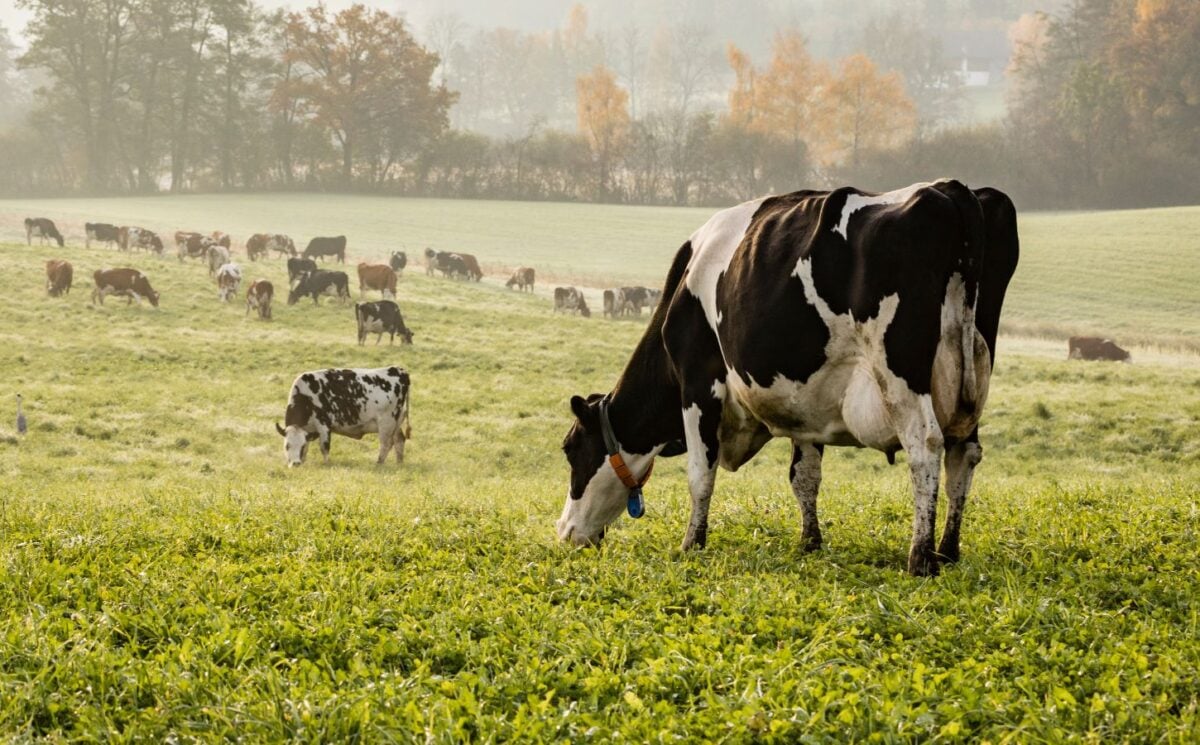The Swiss government has launched a new Climate Strategy for Agriculture and Food, which outlines the benefits of reducing meat consumption in the country.
The strategy states that the greenhouse gases emitted to produce food must be reduced by two-thirds per person by 2050 compared to 2020 levels. Emissions from domestic agricultural production must be reduced by at least 40 percent compared to 1990 levels.
The strategy states that a diet rich in plant foods, and with less meat, “contains benefits for both health and the environment.” It also notes that, compared to official nutritional guidelines, meat consumption is too high in the country, while consumption of dairy products, legumes, fruits and vegetables is too low.
According to 2018 data, Swiss people consumed an average of 52.06 kg of meat from land animals a year – mainly pork, poultry, and beef – as well as 8.72 kg of fish and shellfish. That is around 166g a day of meat from land and sea animals. Meanwhile daily average consumption of fruits and vegetables is only 3.6 portions – less than the recommended five a day.
As reported by Swiss Info, Michael Beer of the Federal Office for Food Safety and Veterinary Affairs said: “Two to three portions of meat a week is a maximum from a health point of view. We are eating three times too much.”
Swiss animal farming
Agriculture occupies 36 percent of land in Switzerland, with the vast majority of that used for farming animals. There are around 1.5 million cows in Switzerland, though there are now fewer of them than there were in the 1990s. They are the largest source of emissions from agriculture. The decline in cattle numbers over the past three decades has helped to reduce the country’s agricultural emissions.
The Swiss Farmers’ Union has been supportive of the new strategy for dealing with adapting agriculture to global warming. But it believes that limiting meat production and consumption is “problematic”. It argues that the climate impact of meat reduction is overestimated and that the reality is that demand for Swiss meat is high.
The British meat industry has waded into the debate, claiming that less meat and more plant-based food is not necessarily healthier or more environmentally friendly.
The environmental impact of meat

There is no doubt, however, animal agriculture is catastrophic for the planet. “Livestock” farming is one of – if not the most – environmentally destructive industries there is, driving greenhouse gas emissions, deforestation, and biodiversity loss.
Experts from bodies including the University of Oxford have stated that western countries need to dramatically reduce meat consumption to avoid climate collapse. Across all environmental metrics, plants foods like nuts and vegetables score far better than animal-based foods. Multiple studies show the health benefits of eating more plant-based foods and fewer animal-based foods.
Acceptance of meat reduction policies
According to a recent study, certain policy measures to reduce meat consumption in Switzerland are more acceptable to stakeholders than others. The policies with the highest rate of approval were those concerning public education on sustainable diets and voluntary measures by industry. Measures such as nudging people towards meat alternatives and limiting meat in public catering received lower support.
The stakeholders were drawn from science and research, public institutions, political parties, NGOs, “interest groups,” and the food industry. Those with a stake in food production more often rejected measures involving deeper interventions to reduce meat consumption, while NGOs and research groups more often supported them.






